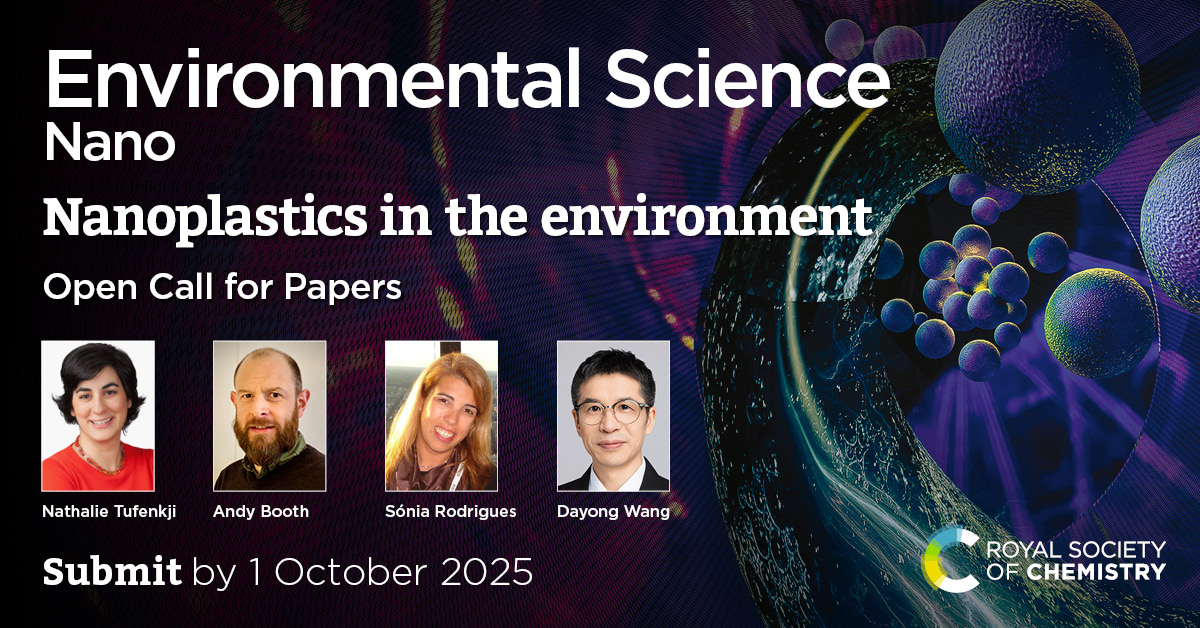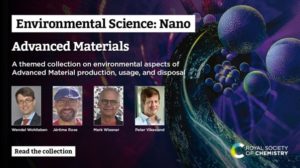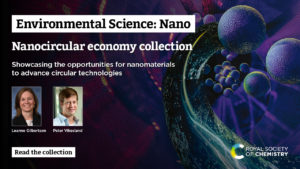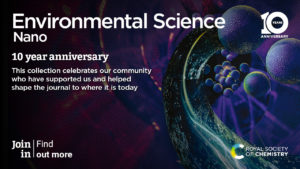Guest edited by Professor Zhugen Yang (Cranfield University, UK), Professor Bintian Zhang (Southern University of Science and Technology, China) and Professor Peter Vikesland (Virginia Polytechnic Institute and State University, US), Environmental Science: Nano is pleased to highlight our new collection exploring Nanosensing.
This themed collection will highlight the development and use of biochemical sensors within complex biological, environmentally relevant samples in uses such as water quality monitoring, air pollution detection, soil contamination assessment, and biodiversity monitoring, thereby enhancing our understanding of environmental health. This collection will showcase the following:
- The use of novel nanomaterials such as nanoparticles, nanocomposites and nanostructures in environmental sensing application.
- The detection of a wide range of environmentally relevant analytes, including heavy metals, organic pollutants, and biological agents.
- Utilisation of innovative techniques to develop nanosensors that exhibit enhanced sensitivity, specificity, and stability. These methods encompass both top-down and bottom-up approaches, self-assembly techniques, and advanced processes like nanolithography.
- Refinement of transduction mechanisms to convert analyte-receptor interactions into measurable signals, which can be electrical, optical, electrochemical, or mechanical, to enhance the overall performance of the sensors.
- Strategies to tailor the surfaces of nanomaterials, improving their capacity to recognize specific analytes and facilitating selective detection in complex environmental contexts.
- The integration and miniaturization of nanosensors into portable, wearable, or distributed sensing platforms enable real-time monitoring of environmental parameters.
This themed collection will include all manuscript types: original research papers, communications, perspectives and review articles. If authors are interested in submitting a review article, please send an outline proposal to the editors at esnano-rsc@rsc.org for approval and official invitation.
Article publication online and in issues will occur without delay to ensure the timely dissemination of the work. The articles will then be assembled on the RSC Publishing platform and promoted as a web-based thematic collection, to permit readers to consult and download individual contributions from the entire series.
The submission deadline is 31st January 2026.
If you’re interested, we invite you to submit your research today, quoting ‘ENSENS25’ in the ‘Comments to the Editor’ when submitting your manuscript.
Manuscripts should be submitted via the Royal Society of Chemistry’s online submission service and the Editorial Office informed by email. The Editorial Office reserves the right to check suitability of submissions in relation to the scope of the collection and inclusion of accepted articles in the collection is not guaranteed. All manuscripts will be subject to the journal’s usual peer review process.
For more information on the scope of Environmental Science: Nano and our author guidelines, please visit our website at rsc.li/esnano or email us at esnano-rsc@rsc.org.























